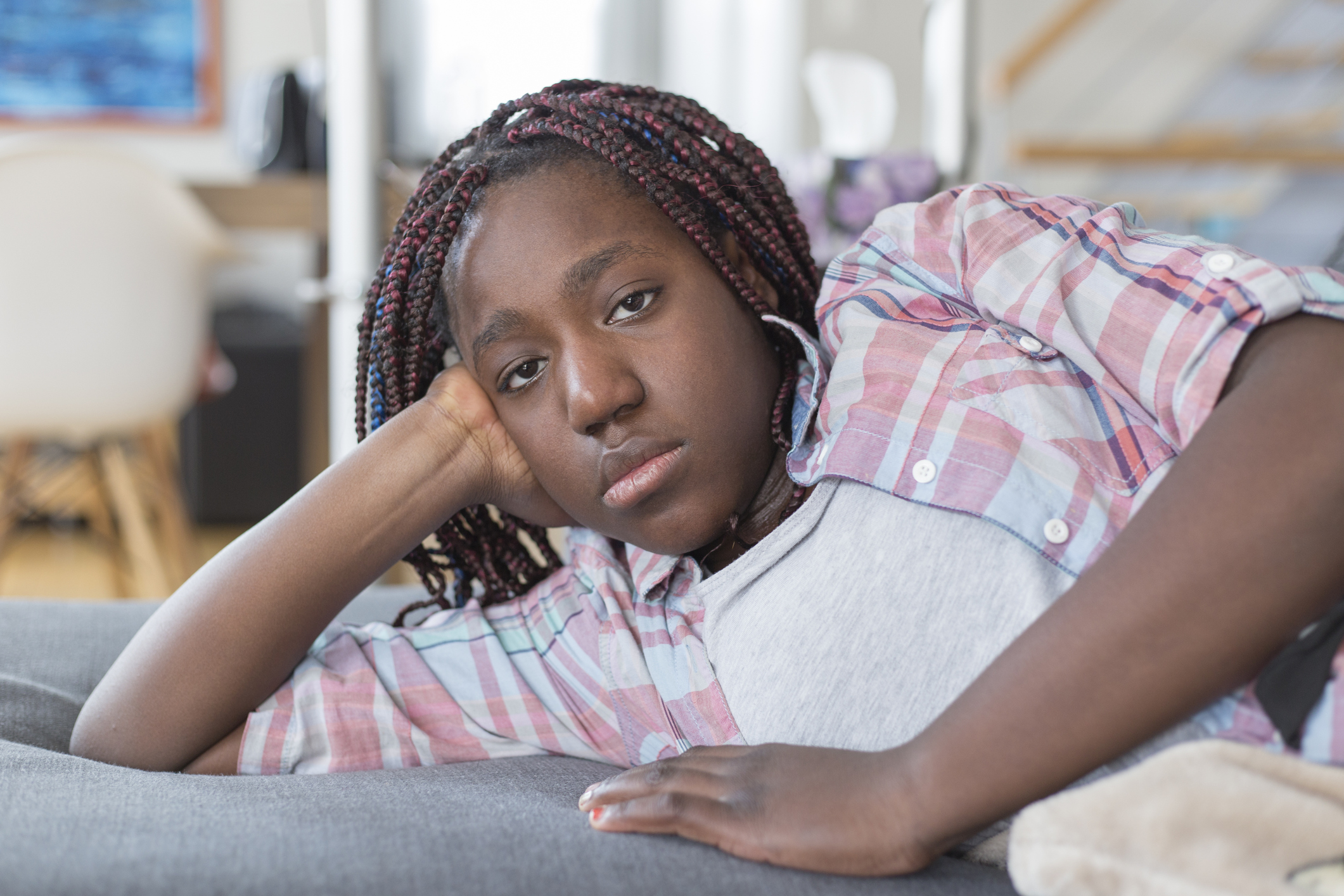Worried about thyroid problems in your adolescent teenager?

The reason that the thyroid has such a major effect on the body is that despite its small size (typically weighing less than 28 g) it manufactures the hormones that control metabolism, sexual development, the structure of the bones and growth.
As an Honorary Consultant Endocrinologist at the specialist adolescent thyroid clinic at the UCLH I see many teenagers whose treatment has transformed lives which have been unknowingly governed by a thyroid condition.
However, the real challenge with identifying thyroid symptoms in an adolescent is that they can effectively hide in plain sight…
HYPOTHYROIDISM
Hashimoto’s autoimmune thyroiditis is the most common cause of hypothyroidism in adolescence. You can read more about this condition just here
This occurs in an estimated 1% to 2% of teenagers with a 4:1 female predominance; and in approximately 50% of cases there is a family history of this condition.
Several syndromes are linked with an increased risk for developing autoimmune hypothyroidism, including Down’s syndrome and Turner’s syndrome. It can also occur in those already displaying another autoimmune disorder - most commonly:
- type 1 diabetes
- alopecia
- vitiligo
- Coeliac disease
Hypothyroidism may similarly occur following external beam radiotherapy to the head and neck for certain cancers; and following total-body irradiation in preparation for a bone marrow transplant.
It may sound bizarre but in patients being treated for Graves’ disease or thyroid cancer, permanent hypothyroidism is often the goal or an outcome that is considered treatable.
In hypothyroidism – responsible for 85% of cases of thyroid disease in this age group - your teenager may feel tired and cold, have dryer skin and hair than usual, and experience constipation but may think this is “just life” and not even mention it to you.
There are other symptoms to look out for including:
- Poor growth
- Delayed puberty
- Finding it difficult to concentrate
- Irregular periods in girls
What hypothyroidism is NOT usually responsible for is your teenager being overweight. Usually it’s weight gain that can cause minor changes in thyroid hormone levels rather than the hormone being responsible for that weight gain. However, if your child is not getting taller it may look as if they are carrying more weight.
HYPERTHYROIDISM
Hyperthyroidism accounts for 15% of paediatric thyroid disorders, with most cases attributable to autoimmune hyperthyroidism (Graves’ disease). In the UK, the incidence of Graves’ disease among paediatric patients is 1 case per 100,000. Graves’ disease is more common among girls, with a peak incidence between 10 and 15 years of age.
Like hypothyroidism, the condition is often associated with other autoimmune diseases within the family or the patient, such as
- type 1 diabetes
- Coeliac disease
- Addison’s disease
- systemic lupus erythematosus (SLE)
- Hashimoto’s thyroiditis
- pernicious anaemia
And with other syndromes, such as Down’s syndrome and Turner’s syndrome.
Some hyperthyroid symptoms may also go unnoticed as being part of being a “typical teenager” these include restlessness, trouble sleeping, hyperactivity, moodiness and poor concentration. Your teenager may also experience increased bowel movements which they may be too embarrassed to mention to you.
However, if you see the following it is worth getting your adolescent checked by your GP:
- Bulging eyes
- Hand tremors
- Itchy or red skin
You can read more about Graves Disease and Hyperthyroidism in my patient resources.
TREATMENT FOR HYPOTHYROIDISM
The standard treatment is levothyroxine (L-T4). This is a synthetic hormone which boosts the low levels of hormone produced in the thyroid. There is a recognised challenge in keeping teenagers on track with their medication so do put a system in place to prevent this.
TREATMENT FOR HYPERTHYROIDISM
Like adults, adolescents with Graves’ disease can be effectively treated with anti-thyroid drugs, radioiodine and thyroidectomy.
Among these three treatments, there are some differences in
- the time needed to reduce raised thyroid hormone levels to normal
- the required degree of child and family compliance with the treatment
- the number of follow-up visits and
- the short- and long-term likelihood of recurrent thyrotoxicosis and hypothyroidism.
In contrast to adults, most children with Graves’ disease need treatment with an anti-thyroid drug for a long time. However, the chances of a long-term cure of hyperthyroidism following a prolonged course of anti-thyroid drug therapy are lower than in adults and relapse is common.
Radioiodine therapy is a very effective treatment and in more than 1,000 children treated in this way there is no evidence of an increase in thyroid tumours or other non-thyroid problems. Because there is a theoretical risk of increased sensitivity of the thyroid gland in young children, however, most paediatric endocrinologists prefer not to treat them until they are ten years or older if possible. It is increasingly being used as the first line of treatment in teenagers.
In skilled and experienced hands, thyroidectomy is the most rapidly effective treatment for thyrotoxicosis but this is often reserved for those children with markedly enlarged thyroid glands. A near-total thyroidectomy is now usually performed so hypothyroidism is almost an inevitable outcome as it is in radioiodine treatment. The risks of other complications are very low.
I do hope this is helpful.
If you would like to see my blog post about thyroid problems in children – please click here
Although every effort is made to ensure that all health advice on this website is accurate and up to date it is for information purposes and should not replace a visit to your doctor or health care professional.
As the advice is general in nature rather than specific to individuals Dr Vanderpump cannot accept any liability for actions arising from its use nor can he be held responsible for the content of any pages referenced by an external link.










